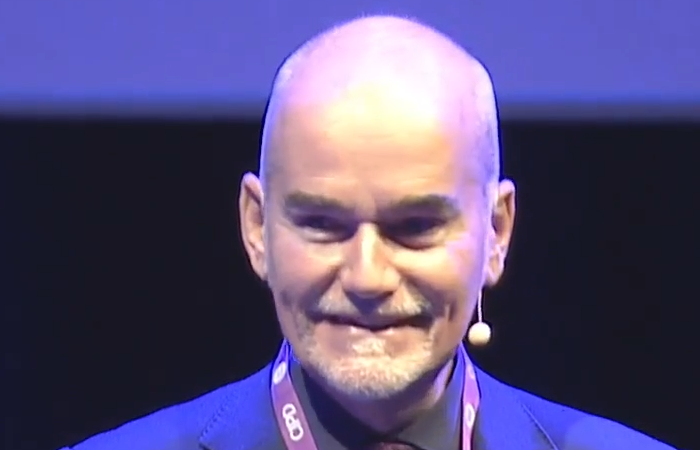The Financial Services Compensation Scheme (FSCS) has said it fully supports the use of targets to achieve diverse senior leadership teams and that the process works.
The Chartered Institute for Personnel and Development conference also heard that diversity targets needed to be ambitious, monitored and given the same attention by the board as financial ones.
And a warning was issued that talented colleagues will leave if they are constantly held up by barriers that block diverse people.
Speaking at the conference, FSCS chief people officer David Blackburn (pictured) said the body showed how things could be done.
“I know from practical experience in my own organisation that it works,” he said.
“We have a 75% female executive team and a 60% female board – that does not happen by osmosis, that does not happen by luck. You have to set targets, you have to use your evidence.
“I absolutely and so passionately agree with [targets] but I also know that it does work in practice – you set the targets, you measure it, things will change.”
Ambitious, robust targets
Blackburn was speaking during a panel session at the conference during which he was also joined by Bernadette Thompson, deputy director of inclusion at the Ministry of Housing, Communities and Local Government.
Thompson added that businesses needed to take a wider look at the lived experiences of diverse people within their organisations and noted targets needed to be tough.
“We need to be ambitious. We need to set robust targets, stretching targets. We need to push the boundaries,” she said.
“What is the pipeline looking like? People don’t just rock-up and become leaders it is a process. People are exposed to leadership in action and people take on those iconic roles.”
She noted that organisations needed to be consistent in the way targets were set and monitored or they would become lost and forgotten
“Diversity and inclusion must be as important in the business as our commercial targets, as our digital targets, our financial targets. We need to keep it firmly in the boardroom,” she added.
‘We will force you to do it’
Marcelle Moncrieffe-Johnson chief people officer of London South Bank University agreed that monitoring the talent pipeline was vital and cited her experiences where in many organisations the talent pipeline still had no diversity or people are constantly seen as not ready.
“What on earth is going to make them ready and why do we accept there’s this position that keeps certain groups of people in a holding pattern. That really has to be looked at,” she said.
“Talented people will walk out the door because they are just being held back and stuck in organisations and caught up in all of these issues causing barriers for people.
“People are not willing to wait for copious amounts of time for organisations to catch-up and people are going to say ‘If you don’t do this we’re going to force you to do it’,” she added.
